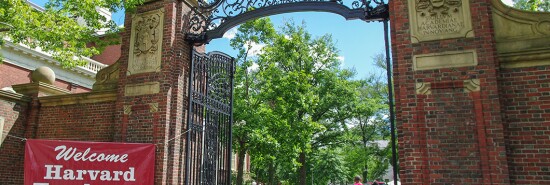
Affirmative action defenders keep mouthing ‘diversity’ then argue for reparations
Timothy P. Carney
For 20 years, government-run and government-funded universities have couched their affirmative action programs in the framework of “diversity.” That’s because, in the 2003 Grutter decision, the Supreme Court ruled that the University of Michigan could keep up its race-conscious admissions criteria because pursuing a diverse student body is a valid state interest.
There’s some real sense to that. I’ve written about how, in a discussion, diversity of background and experience (both of which are connected to race) can enhance learning.
THE ARC OF THE MORAL UNIVERSE JUST WOBBLES AROUND
The problem is that the talk of diversity didn’t match the reality of affirmative action for the past 20 years. Affirmative action in American academia has always been an attempt at reparations for past oppression and discrimination.
Columnist Megan McArdle has made that argument cogently in this thread:
Now Justice Clarence Thomas makes exactly that argument in his concurrence today in Students for Fair Admissions vs. Harvard. Harvard and UNC mouthed the words “diversity,” but they didn’t really mean it.
Thomas points out that Harvard made zero effort to achieve religious diversity, thus drawing into doubt whether they were really using affirmative for the sake of diversity.
Thomas goes on to point out that the dissents by Justices Sonya Sotomayor and Kentanji Brown Jackson stretch the word “diversity” to mean reparations or pursuing certain social outcomes.
Jackson argues for affirmative action, Thomas states, by “noting that UNC’s black admissions percentages ‘do not reflect the diversity of the State.’” Jackson’s definition of “diversity” includes a society having leadership that “reflect[s] the diversity of the People.” For starters, this has nothing to do with diversity serving the goal of educating students.
Further, Jackson is using “diversity” not to mean a variety of voices and perspectives, but to mean “racial makeup.” That is, she wants affirmative action to help craft a particular political landscape, one which she thinks is demanded by our past sins.
CLICK HERE TO READ MORE FROM THE WASHINGTON EXAMINER
The liberal dissents also justified race-based admissions as a way of closing racial income gaps. This, again, has nothing to do with any normal understanding of diversity.
I probably disagree with Thomas about the virtues of diversity, but I do agree with him that the liberals and the universities were using the word to mean something else. And as Thomas points out, the 14th Amendment and the case law based on it allow race-based lawmaking only in the rarest cases with the most concrete connection between remedies and past harms.
